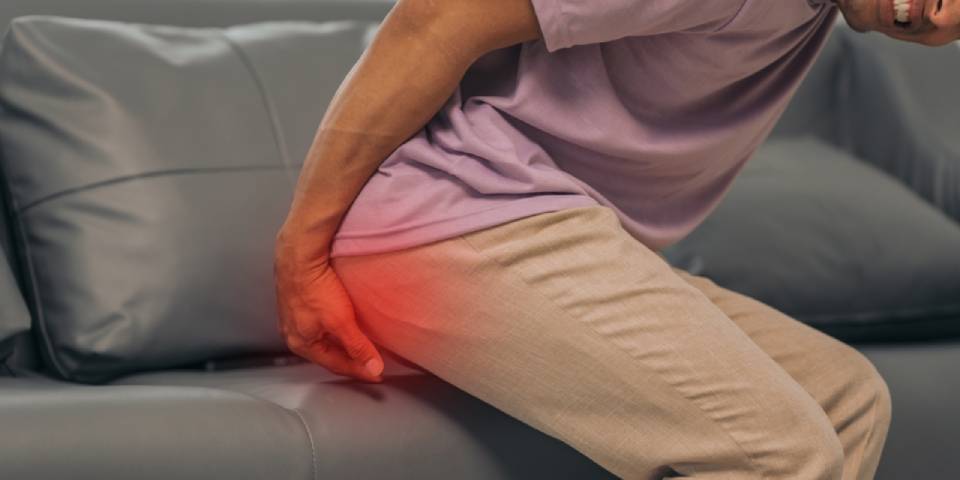
- November 10, 2025
- Dr. Vikrant Kale
- 0 Comments
- Latest Blogs
Is It Piles or Something Else? How to Identify the Early Signs?
Have you recently noticed pain or mild bleeding while passing stool and wondered what it could be? Many people immediately assume it is piles, but not every symptom around the anus is caused by hemorrhoids. Sometimes it may be due to anal fissures, infections, or other digestive issues that require different care.
Understanding the early warning signs can help you decide whether home care is enough or if you should visit a specialist. This blog will help you recognize the early signs of piles and how to differentiate them from similar conditions.
What are Piles (Hemorrhoids)?
Piles are swollen veins around the rectum or anus. They can develop inside (internal) or outside (external), and may cause irritation or discomfort. People often develop piles due to constipation, straining during bowel movements, pregnancy, or long hours of sitting.
Although piles are common and manageable, symptoms can overlap with other conditions — so proper diagnosis is important.
Early Signs of Piles:
Recognizing early symptoms of piles can help you act before they worsen:
- Mild Pain or Discomfort: A dull ache or discomfort while sitting or during bowel movements.
- Rectal Bleeding: Bright red blood on the toilet paper or surface of stool is a common sign.
- Itching or Irritation: Swelling or mucus around the anus may cause itching.
- Lump or Swelling: A soft bump near the anus may be felt, especially in external piles.
These symptoms often indicate piles, but they can also appear in other rectal conditions.
If It's Not Piles or Something Else, What Could It Be?
Some conditions mimic symptoms of piles, including:
- Anal Fissure: Sharp pain with stools due to a small tear in the anal lining.
- Anal Fistula: A small tunnel near the anus causing discharge and persistent pain.
- Inflammatory Bowel Disease (IBD): Chronic inflammation causing pain, bleeding, and diarrhea.
- Polyps / Colorectal Conditions: Continuous bleeding and weight loss may indicate deeper issues.
Since these share common symptoms with piles, getting evaluated becomes necessary.
How to Know Whether It’s Really Piles?
Signs that commonly support piles:
- Bright red bleeding
- Itching or discomfort
- Mild pain during stool
- Small lump around the anus.
Signs that may suggest something other than piles:
- Severe sharp pain
- Dark blood or clots
- Pus discharge
- Fever or weight loss
If unsure, consult a specialist.
Common Causes of Piles:
Factors that increase piles risk include:
- Chronic constipation
- Low-fiber diet
- Straining during bowel movements
- Pregnancy
- Sitting for long hours
- Aging
Simple lifestyle changes can help prevent early symptoms from worsening.
Home Remedies for Early Piles Symptoms:
You can try:
- Fiber-rich foods
- Adequate water intake
- Regular exercise
- Avoid straining
- Limit long sitting hours
These habits reduce pressure in the lower rectum and may relieve discomfort.
Diagnosis of Piles:
If symptoms continue, diagnosis is important. A gastroenterologist may perform:
- Physical exam
- Digital rectal exam
- Proctoscopy / endoscopy (if needed)
Accurate diagnosis ensures timely and correct treatment. An Accurate diagnosis ensures timely and correct treatment. Experienced specialists like Dr. Vikrant Kale and Dr. Samrat Jankar help evaluate the exact cause and guide appropriate management.
Piles Treatment Options:
Treatment depends on severity:
✔ Lifestyle Modifications
Better eating, hydration, and routine bowel habits.
✔ Medications
Creams, ointments, and tablets help reduce swelling and pain.
✔ Minimally-Invasive Procedures
Used in moderate to severe piles:
- Banding
- Sclerotherapy
- Laser therapy
These procedures are safe, quick, and offer faster recovery.
✔ Surgery
Needed when piles are large, painful, or recurrent.
Conclusion: Is It Really Piles?
Not every case of anal pain, bleeding, swelling, or irritation automatically means piles. While hemorrhoids are common, conditions like fissures, fistulas, infections, or inflammatory disorders can present similar symptoms.
Recognizing the early signs and seeking timely medical advice can prevent complications and offer quicker relief. If symptoms persist, worsen, or create confusion, consulting an expert gastroenterologist can help determine whether it is piles or something else and suggest the right path forward.
For reliable Piles Treatment in Pune, trusted specialists at Dr Kale’s Gastro Clinic, including Dr. Vikrant Kale and Dr. Samrat Jankar, offer accurate diagnosis and effective care to help you return to comfortable living.

